Indigenous Governance Database
legal infrastructure
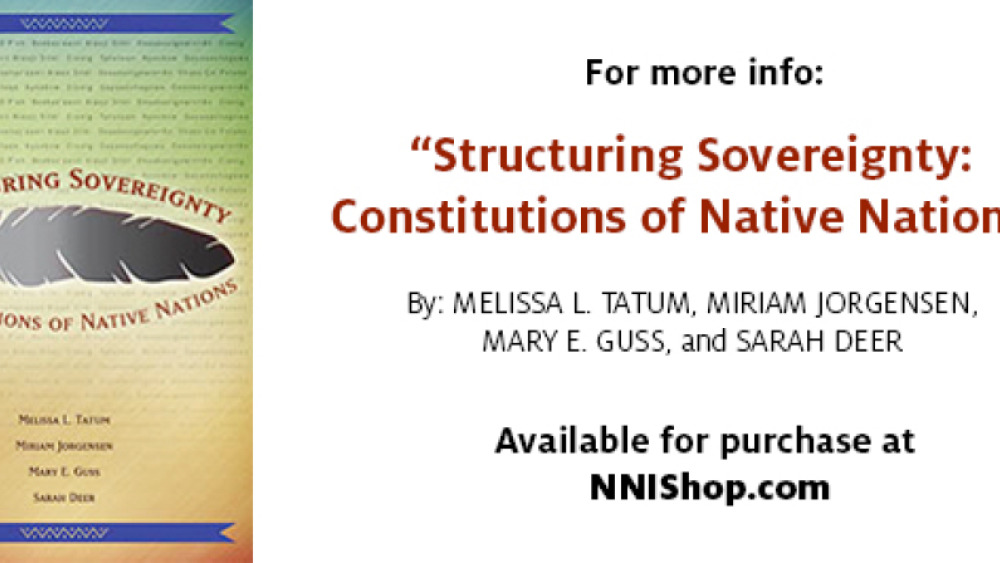
Confederated Tribes of Siletz Indians of Oregon Constitution
Location: Oregon Population: 4800 Date of Constitution: 1979, as amended 1994 and 2008 Purposes: Oregon 4800 1979, as amended 1994 and 2008 We, the members of the Confederated Tribes of Siletz Indians of Oregon, being a federally recognized Indian tribe and the political successor in interest to…
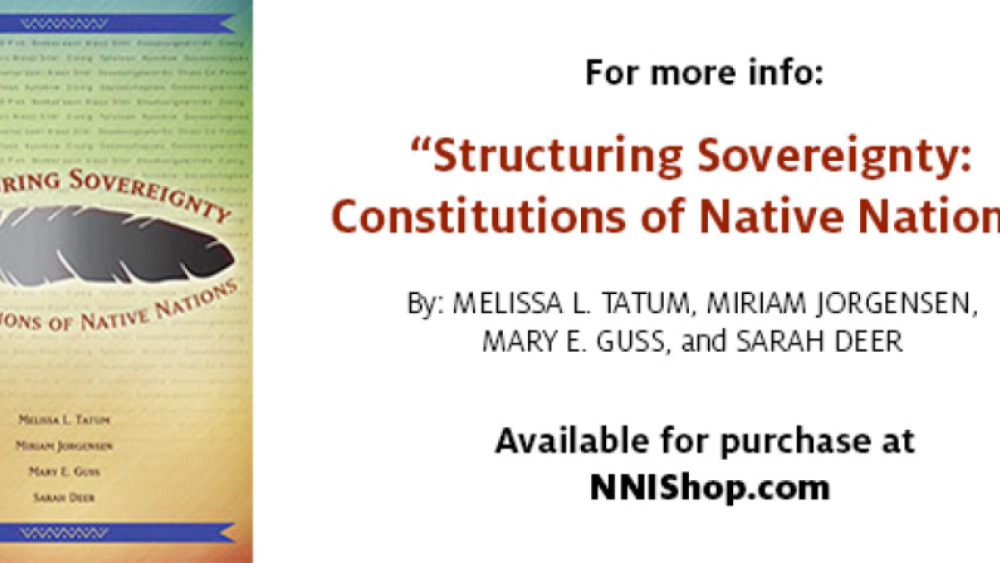
Confederated Salish and Kootenai Tribes Constitution
Location: Montana Population: 7,000 Date of Constitution: 1935 Preamble: We, the Confederated Salish and Kootenai Tribes of the Flathead Reservation, Montana, in order to establish a more responsible organization, promote our general welfare, conserve and develop our lands and resources, and…
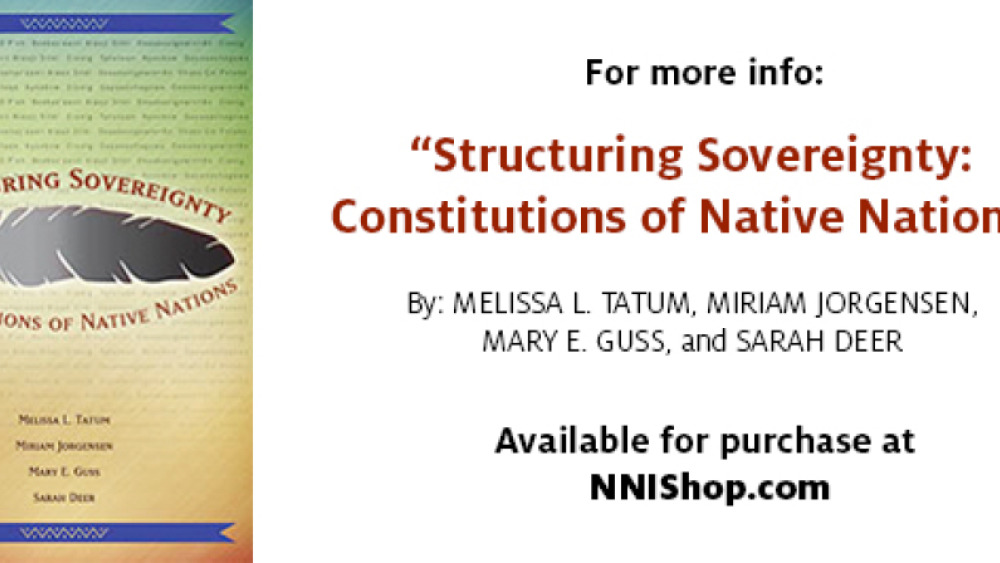
Citizen Potawatomi Nation Constitution
Citizen Potawatomi Nation is located in Oklahoma with a population of 29,000 people. The constitution was enacted in 1938 and amended in 1985 and 2007. Preamble: We, the Citizen Potawatomi Nation, sometimes designated as the Potawatomi Tribe of Oklahoma, in furtherance of our inherent powers…
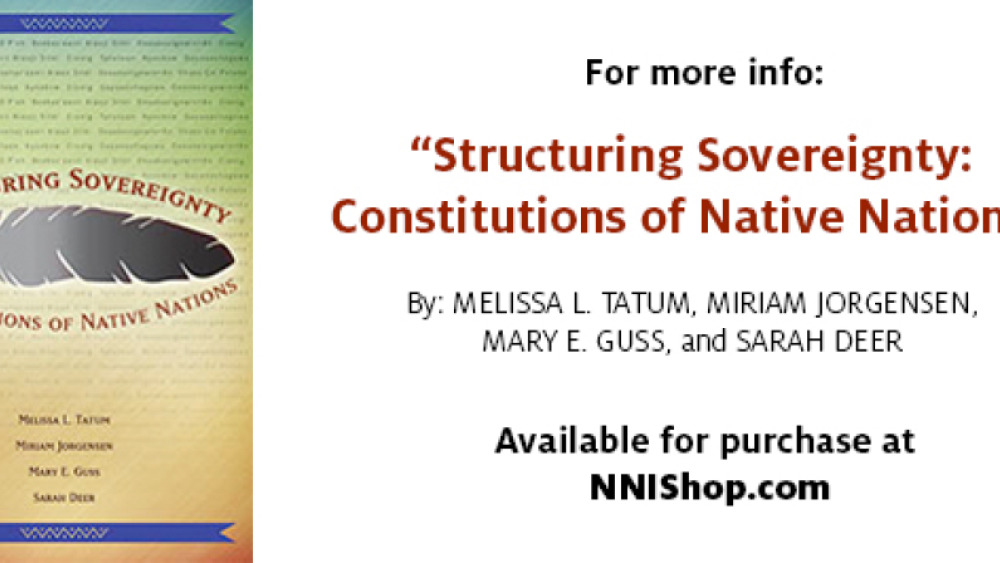
Chitimacha Tribe of Louisiana Constitution
The Chitimacha Tribe of Louisiana is located in Southern Louisiana with a population of 950 people. The constitution was enacted in 1970 and amended in 2009 and 2010. Preamble: We, the Chitimacha Indians of Louisiana, desiring to establish an organization for our common welfare and benefit,…
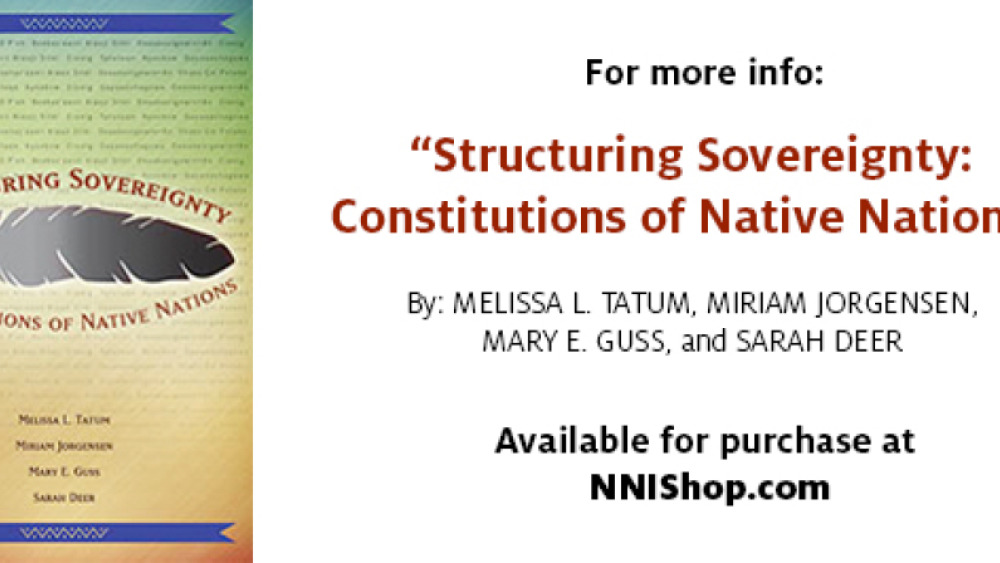
Chilkat Indian Village Constitution
The Chilkat Indian Village is located in Southeastern Alaska with a population of 140 people. The constitution was enacted in 2006. The village was involved in a famous cultural property case about Whale House rain screen and totem poles. Preamble: We, a sovereign community of Tlingit Indians…
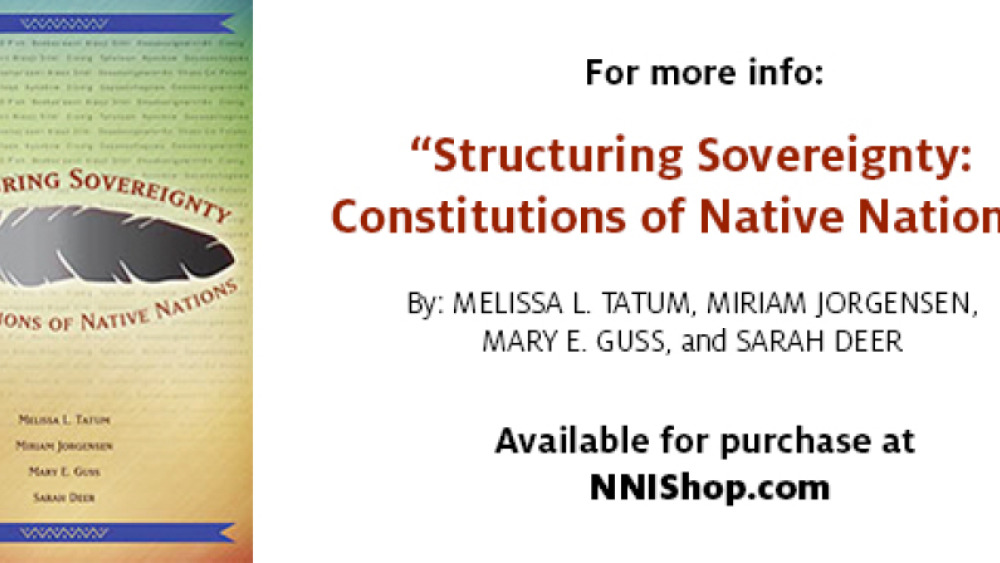
Chickasaw Nation Constitution
Chickasaw Nation is located in Oklahoma with a population of 49,000 people. The constitution was enacted in 1983 and amended in 2002. Preamble: We, the people of the Chickasaw Nation, acknowledging with gratitude the grace and beneficence of God, in permitting us to make choice of our…
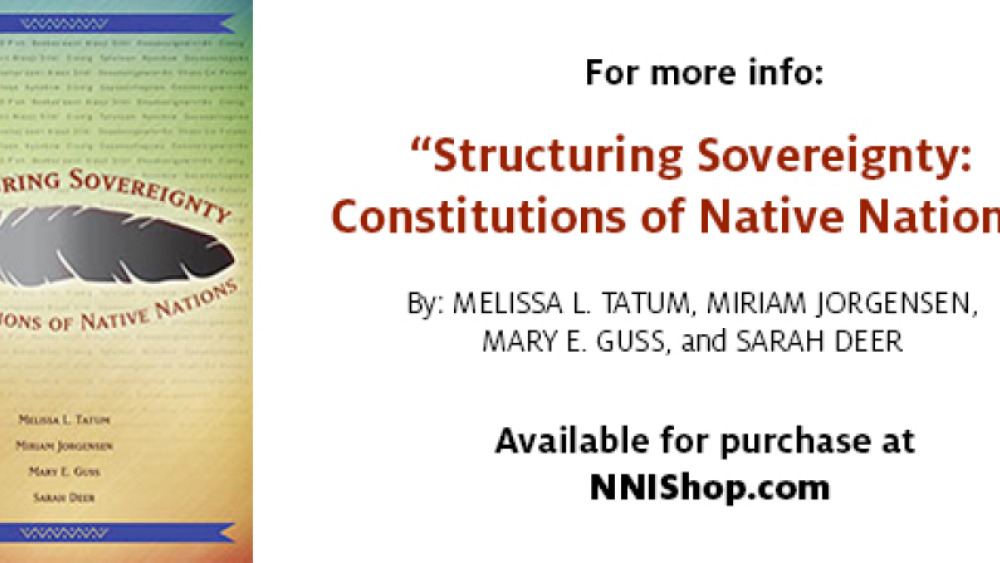
Blackfeet Nation Constitution
The Blackfeet Nation is located in Northern Montana at the Canadian border. It has a population of 16,500 people and the tribe was artificially divided by the U.S.-Canadian border. The constitution was enacted in 1934 and amended in 1962, 1978, and 1998. PREAMBLE: We, the adult members of the…
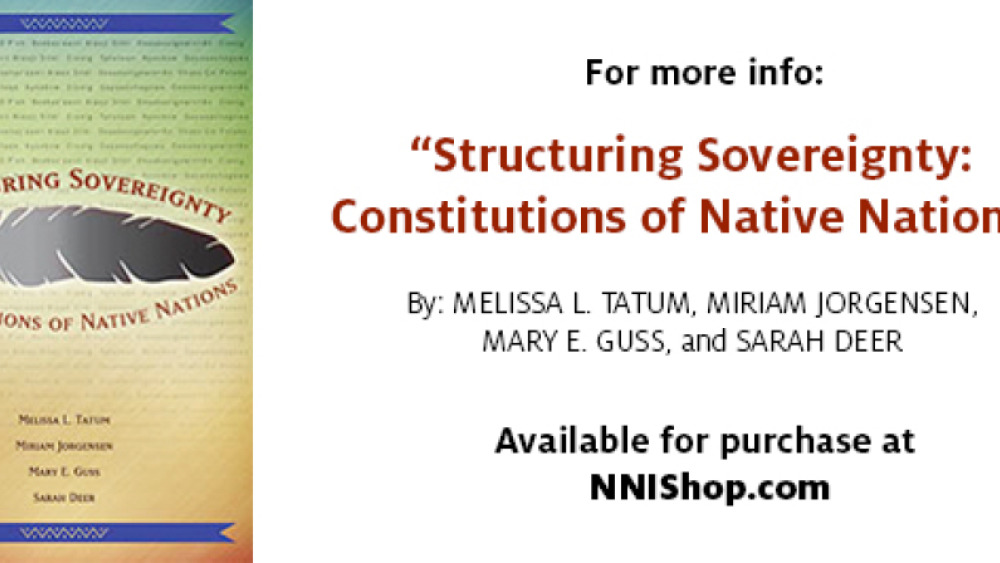
Alabama and Coushatta Tribes of Texas Constitution
The Alabama and Coushatta Tribes of Texas is located in East Texas with a population of 1,000 individuals. Their constitution was ratified in 1938. The federal government terminated its relationship with the tribe in 1954 and restored federal recognition in 1987. Preamble: We, the Alabama and…
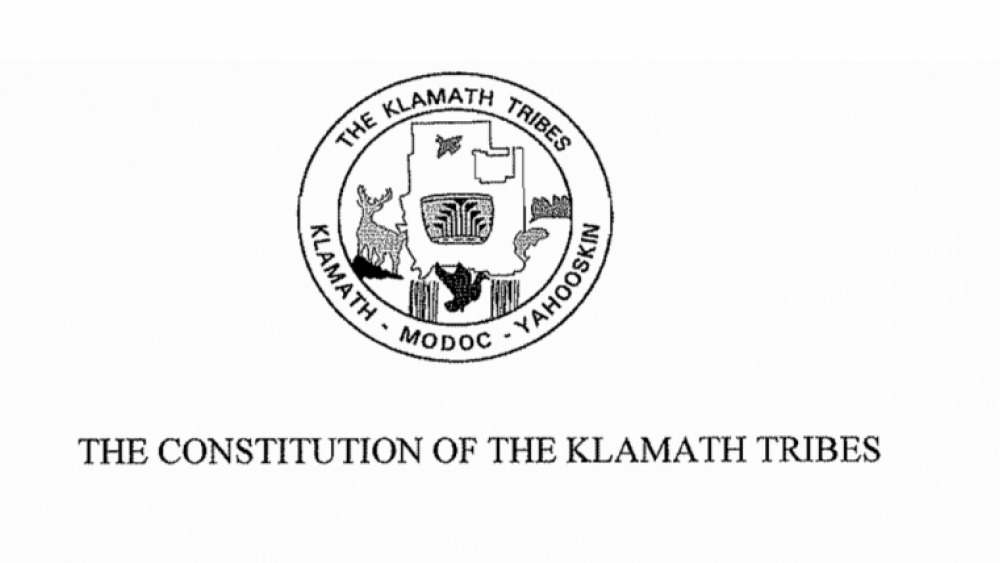
Klamath Tribes: Preamble Excerpt
PREAMBLE: We, the People of the Klamath and Modoc Tribes and the Yahooskin Band of Snake Indians, [hereafter referred to as the Klamath Tribe(s)] do hereby establish and adopt this Constitution for the government of our General Council in order to recognize our Tribes for the continued…

Kaw Nation: Initiative & Referendum Excerpt
ARTICLE XII: INITIATIVE AND REFERENDUM Section 1. The citizens of the Kaw Nation reserve unto themselves the power of initiative and referendum. Section 2. Initiative. Any issue shall be submitted for an initiative election pursuant to this section upon receipt of a petition containing…
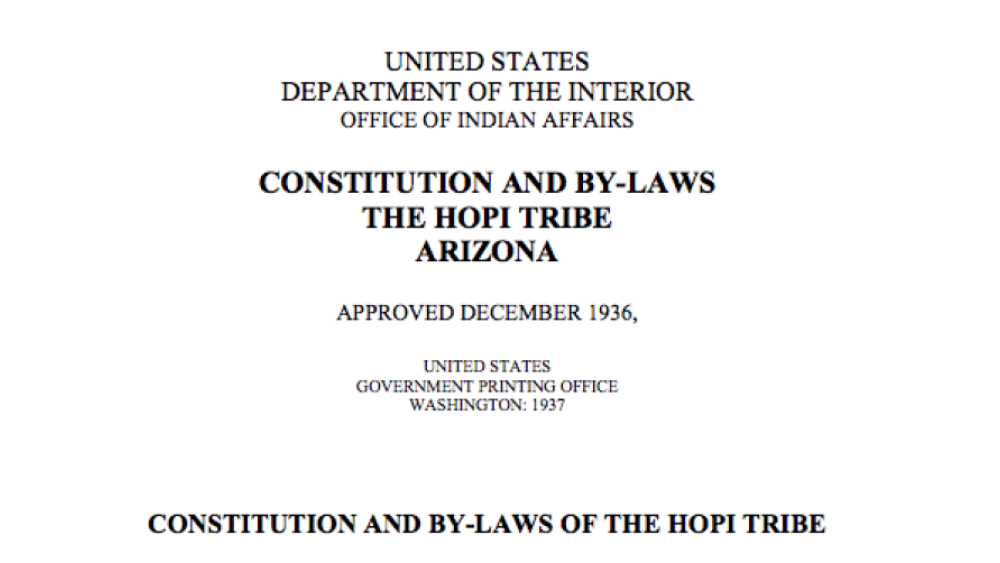
Hopi Tribe: Governmental Structure Excerpt
ARTICLE III-ORGANIZATION SECTION 1. The Hopi Tribe is a union of self-governing villages sharing common interests and working for the common welfare of all. It consists of the following recognized villages: First Mesa (consolidated villages of Walpi, Shitchumovi, and Tewa). Mishongnovi.…
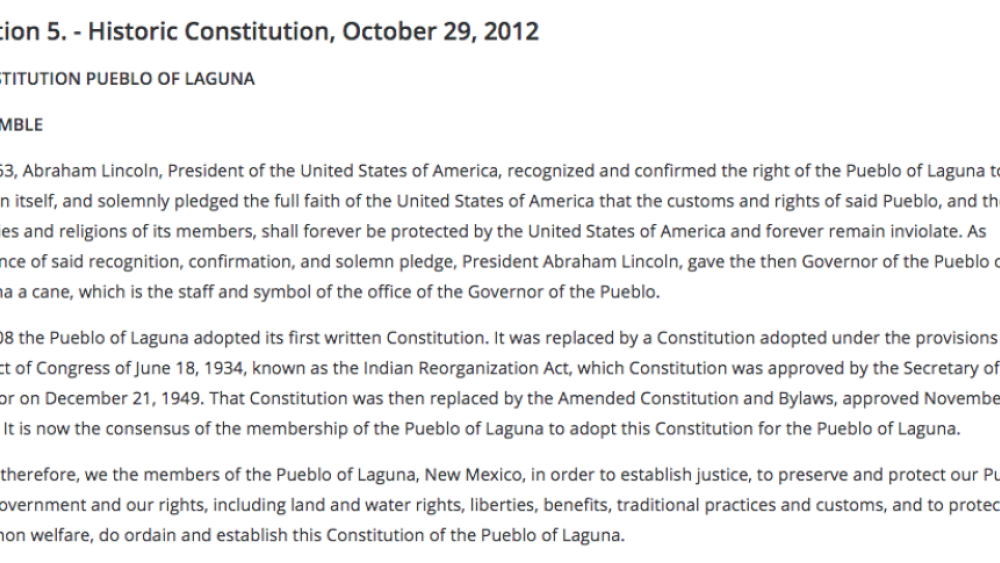
Pueblo of Laguna: Elections Excerpt
ARTICLE III - THE PUEBLO COUNCIL, STAFF OFFICERS AND SETTLEMENTS Section 1. - The Pueblo Council. The governing power of the Pueblo shall be vested in the Pueblo of Laguna Council. The Pueblo Council, functioning as one (1) governmental entity, shall be composed of the following…
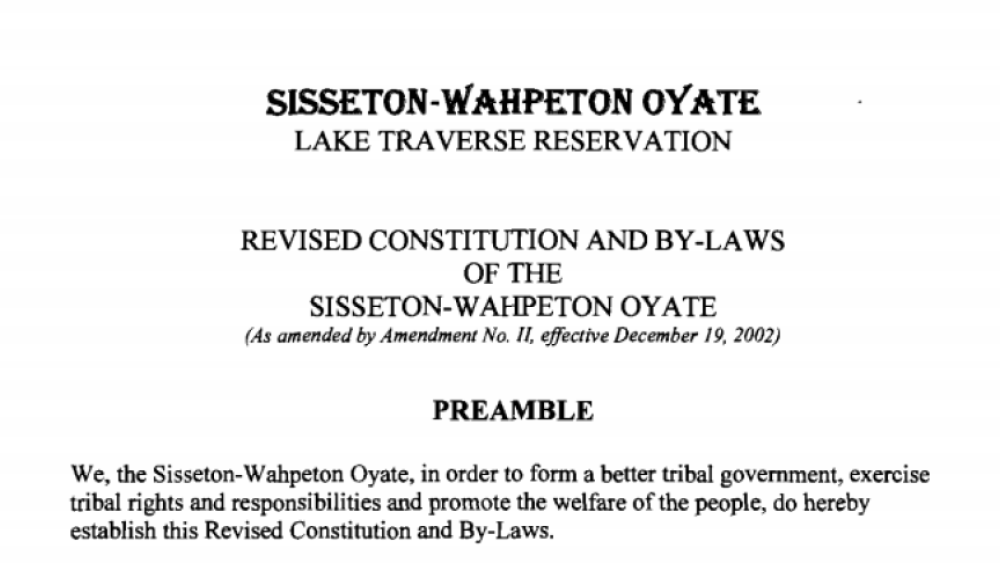
Sisseton-Wahpeton Oyate: Elections Excerpt
ARTICLE V - NOMINATIONS AND ELECTIONS SECTION 1. The first election of the Council under this Revised Constitution shall be called, held and supervised by the present Council within one hundred twenty (120) days after its approval. Successful candidates at this first election shall assume…
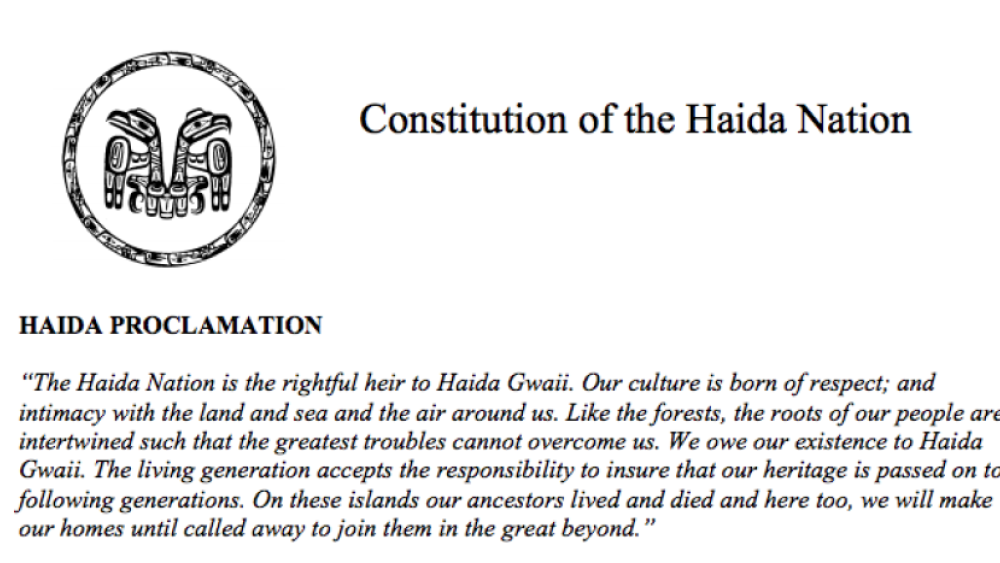
Haida Nation: Jurisdiction/Territory Excerpt
ARTICLE 1 HAIDA TERRITORIES A1.S1 The Territories of the Haida Nation include the entire lands of Haida Gwaii, the surrounding waters, sub-surface and the air space. The waters include the entire Dixon Entrance, half of the Hecate Straits, halfway to Vancouver Island and Westward into the abyssal…
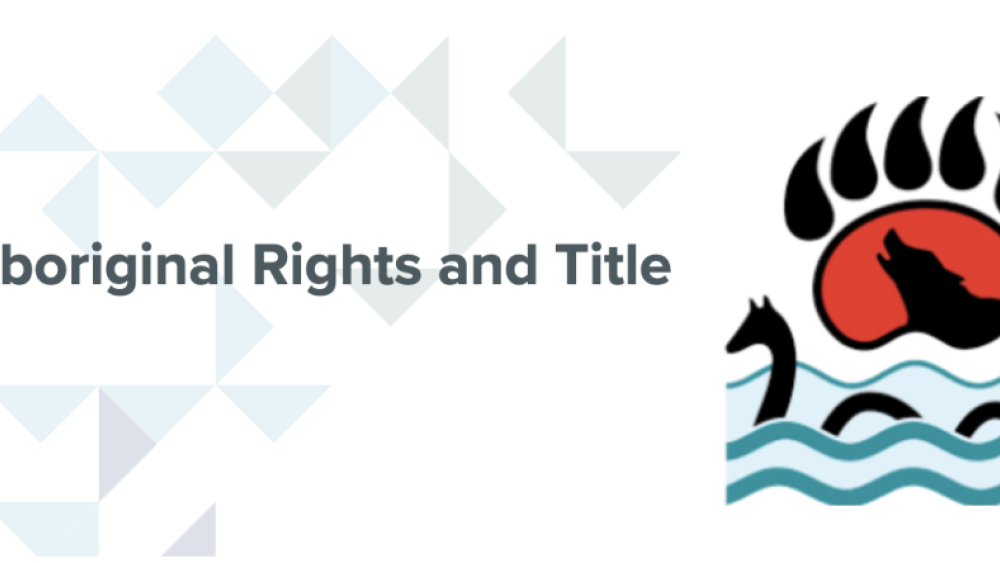
Westbank First Nation: Jurisdiction/Territory Excerpt
2. Aboriginal Rights and Title 2.1 Westbank is part of the Okanagan Nation which has occupied and benefited from Okanagan traditional territory since time immemorial. 2.2 Westbank has never ceded, surrendered, or in any way relinquished aboriginal title and will continue to assert its interests…
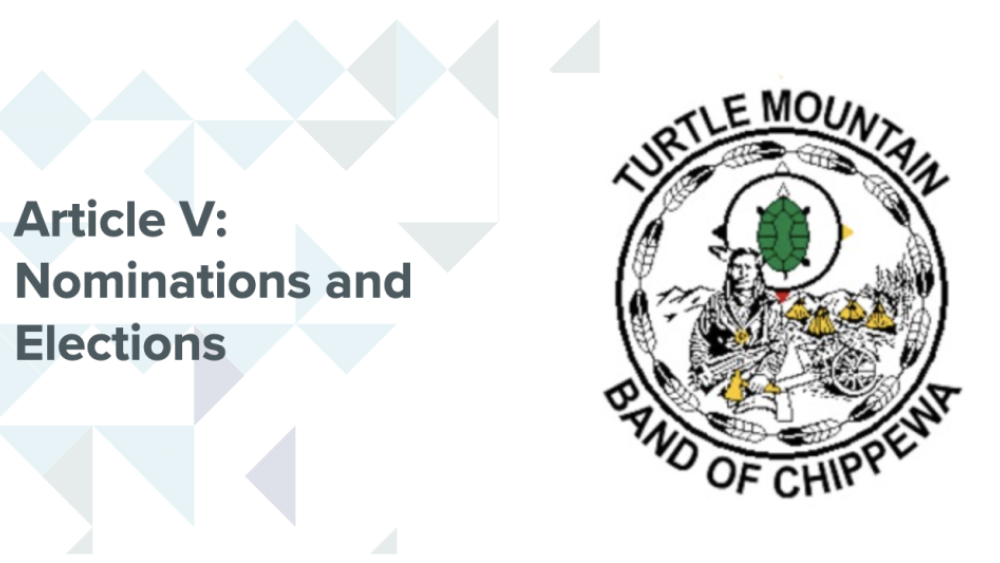
Turtle Mountain Band of Chippewa Indians: Elections Excerpt
ARTICLE V NOMINATION AND ELECTIONS Section 1. All elections shall be conducted by secret ballot. The candidate or issue receiving the greatest number of votes cast shall prevail. In the event more than one representative is required to be elected for a district, the positions shall be filled…
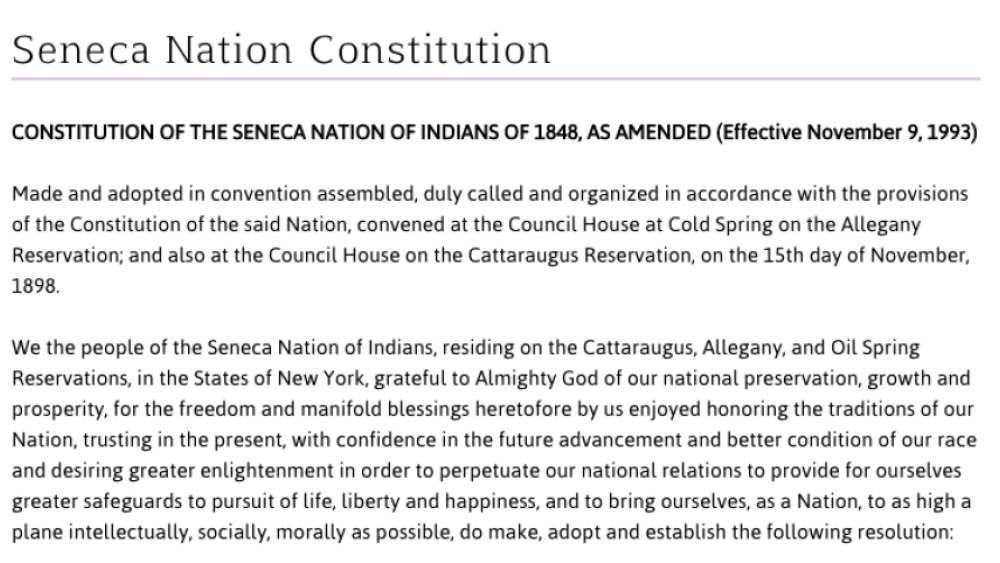
Seneca Nation: Terms of Office Excerpt
SECTION I. Our government shall have a legislative, executive, and judiciary department. The legislative power shall be vested in a Council of sixteen members, who shall be known and called the Councillors of the Seneca Nation of Indians, eight Councillors elected to the Council shall be from the…
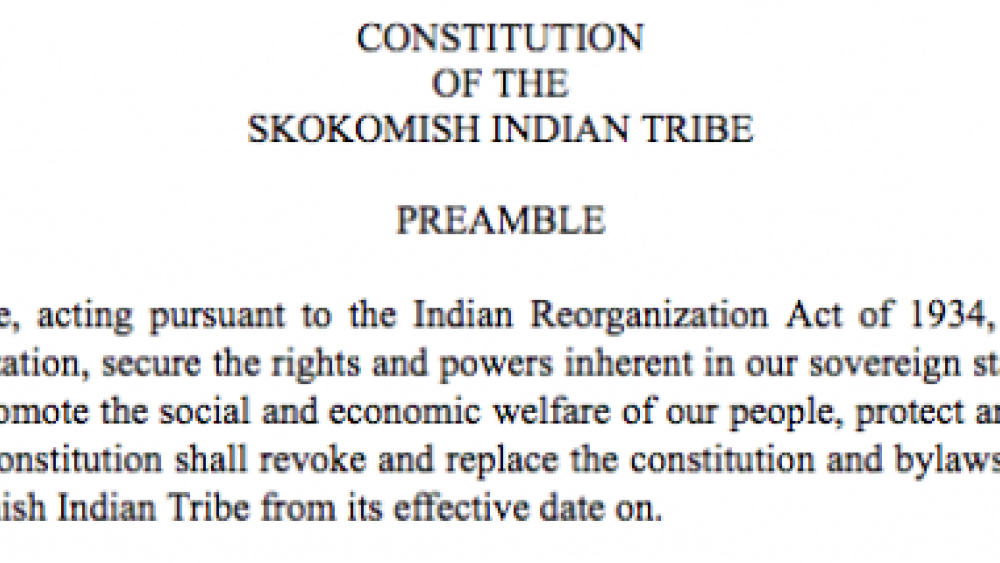
Skokomish Indian Tribe: Terms of Office Excerpt
ARTICLE IV - TRIBAL COUNCIL Sec. 4. Terms of Office Each Tribal Council member shall be elected for a term of four (4) years. Terms of office for the seven (7) council members shall be staggered, two (2) members being elected each year for three (3) consecutive years and one (1)…
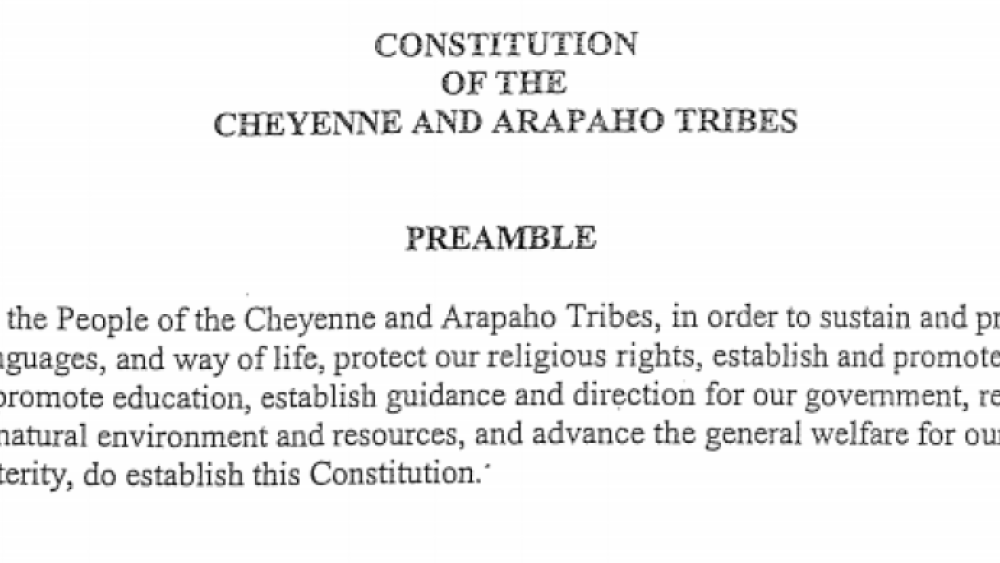
Cheyenne and Arapaho Tribes: Legislative Functions Excerpt
ARTICLE VI - LEGISLATIVE BRANCH Section 1. Composition. The Legislative Branch shall be comprised of one Legislature. The Legislature shall consist of four Cheyenne Districts and four Arapaho Districts. Each Cheyenne District shall have one Cheyenne Legislator and each Arapaho District shall have…
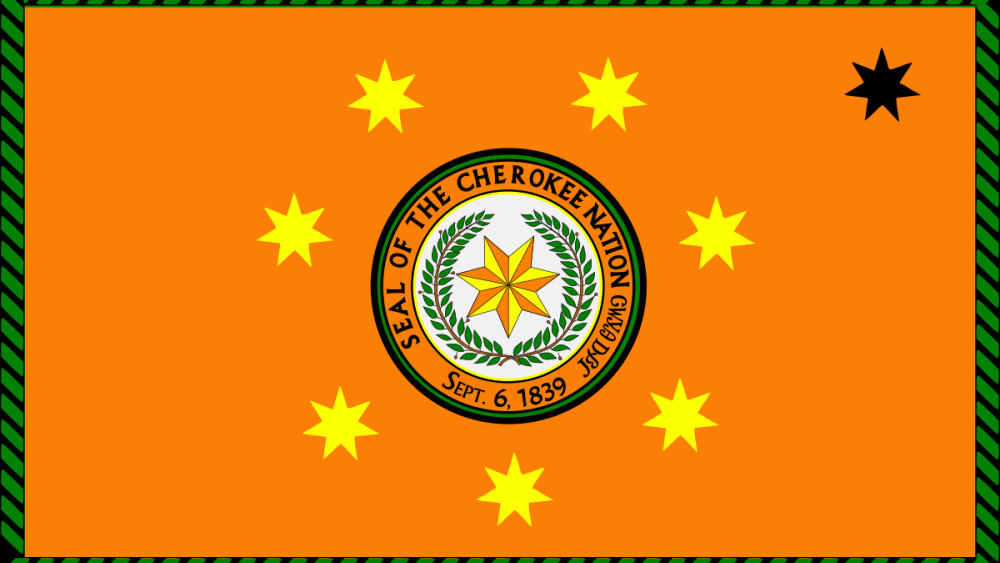
Cherokee Nation: Amendments Excerpt
Article XV. Initiative, Referendum and Amendment. Section 9. No convention shall be called by the Council to propose a new Constitution, unless the law providing for such convention shall first be approved by the People on a referendum vote at a regular or special election. Any amendments,…
Pagination
- First page
- …
- 3
- 4
- 5
- …
- Last page
